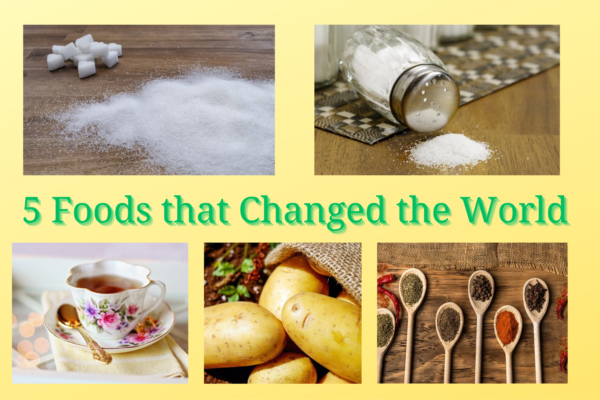
It’s interesting how many of the simple everyday food items we take for granted have had a huge impact on world history and civilizations! Take for example the salt on your french fries………..bet you didn’t know that 19th Century England’s dominance over salt export directly impacted our American Civil War! Since the South relied upon England for their salt and the North blockaded the Southern ports, this resulted in not much salt for the South and without salt during that time – how would many of your foods be preserved?
When Columbus made his second voyage in 1493, sugar was an expensive luxury in Europe due to the backbreaking labor involved in its manufacture. All this began to change when enslaved peoples began to be used to provide this intensive labor and sugar plantations started cropping up in the West Indies and later in Louisiana. The book Twelve years a Slave by Solomon Northup is a memoir of being kidnapped and forced into slavery in a Louisiana sugar plantation.
- The Barbaric History of Sugar
- Twelve Years a Slave (book)
- Sugar Changed the World (book)
- The Sugar Barons (book on CD)
By the 15th Century, demand for spices was immense enough to help inspire the voyages of Christopher Columbus and Vasco Da Gama and thus launch the beginning of European colonialism.
In the late 1800’s tea shops began to pop up in parts of Europe and America where unchaperoned women could meet and talk openly with each other. This may very well have played a role in the start of women’s rights and emancipation.
The hardy potato was first brought to Europe by Spanish explorers and is believed to have played an important role in ending hunger in Northern Europe and thus allowing some of the Northern European countries to dominate much of the world from the mid eighteenth century up to the mid twentieth century.
- How the Potato Changed the World
- Secret History of Food (downloadable eBook)
- Edible History of Humanity (book)





